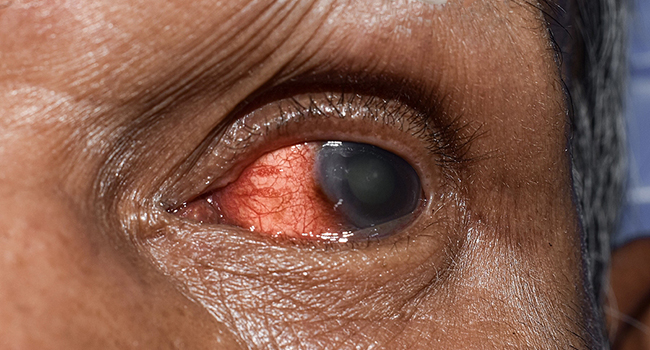
Fungal keratitis is a serious eye infection caused by fungi. It can affect anyone, but it's more common in people who wear contact lenses or who have a weakened immune system. Fungal keratitis can cause a range of symptoms, including eye pain, redness, blurred vision, and sensitivity to light. If left untreated, it can lead to vision loss or even blindness. The infection can be caused by exposure to contaminated water, soil, or plant material, or by improper use or care of contact lenses. Treatment for fungal keratitis usually involves antifungal medications, which can be given as eye drops, pills, or injections. Prompt diagnosis and treatment are crucial to prevent further damage to the eye.
Clinical Trial
A clinical trial was conducted to test a new treatment for fungal keratitis. The trial involved 31 people who were randomly assigned to receive one of two treatments. One group received eye drops alone, while the other group received eye drops and a continuous lavage of a medicine called voriconazole. The researchers wanted to see which treatment was better at curing the infection after three months. They also measured other things like the size of the infection and the thickness of the cornea.
Trial Results
The results of the trial showed that both treatments were about the same at curing the infection after three months. However, the group that received the voriconazole lavage had better results in severe cases of infection. The researchers also found that the size of the infection was smaller in the group that received the lavage after just three days of treatment.
